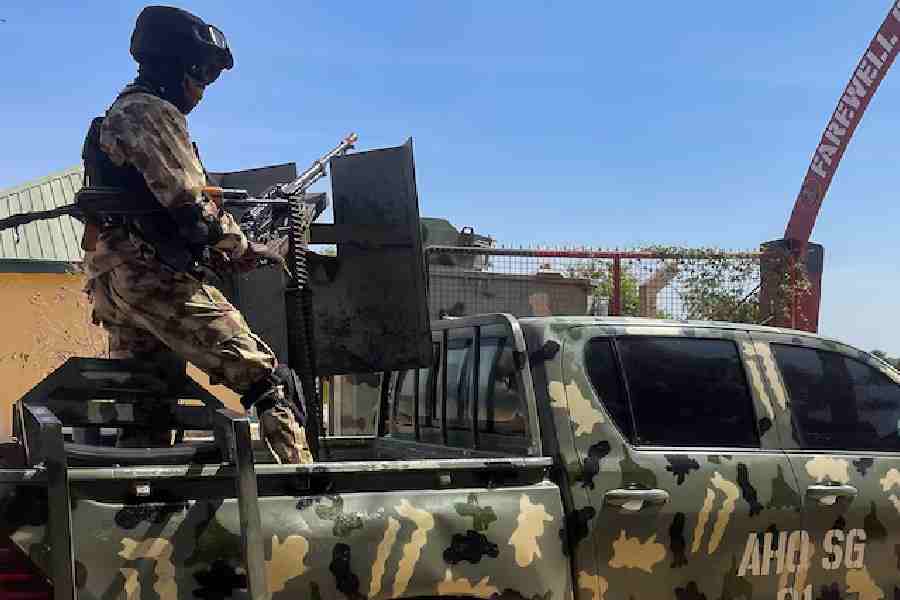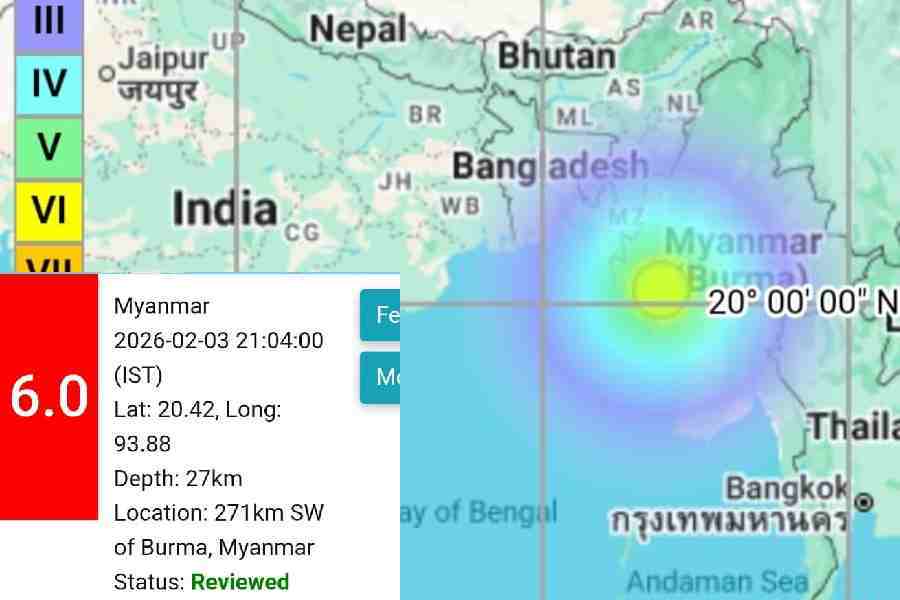 |
| The Howrah-New Delhi Rajdhani after the Rafiganj accident in 2002. Picture by Suman |
Patna, June 25: History repeated itself all over again when the Dibrugarh-bound Rajdhani Express derailed near Chhapra, nearly 12 years after the showpiece train, then on a run between Howrah and New Delhi, had careened off a bridge in Rafiganj in south Bihar’s Aurangabad district.
Little changes in India as was evident from the fact that the state government and railways began a blame game immediately after the mishap, like they had done in 2002.
The railways today said the rail fastening clips (used to fix rails to railway sleepers) were found open at 25 points on the tracks and they cannot come out by themselves.
However, chief minister Jitan Ram Manjhi and his predecessor Nitish Kumar were quick to deny the involvement of Maoists in the accident. Even Union home minister Rajnath Singh stated that it was pre-mature to blame the Maoists at this stage.
The divergent statements echo the confusion in the aftermath of the Rafiganj accident of 2002. On September 9 of that year, the Rajdhani derailed over a bridge on the Dhave river in Rafiganj, around 150km south of Patna, killing more than 130 passengers in one of the worst railway disasters in India.
Nitish, then railway minister, had been quick to attribute the accident to an act of sabotage by Maoists.
In retaliation, the Bihar government, then run by the RJD’s Rabri Devi, attributed the mishap to a failure on the part of the railways.
Railway officials had then said that fishplates — the steel bars that join the ends of a rail — were removed from about 50m from the Howrah end of the bridge over the river.
RJD chief Lalu Prasad, while visiting the site of the accident at Rafiganj, had declared that the railways was running at the “mercy of God”. He repeated the statement today.
Almost a month after the Rafigani accident, the Maoist Communist Centre (a Naxalite outfit that operated in Bihar), owned up responsibility for the sabotage, leading to the deaths of so many innocent people.
It expressed remorse over its action and pledged that it would not target trains again.
After the Naxalite outfits merged to morph into the CPI (Maoist), the promise was forgotten. One of the deadliest attacks occurred in May 2010 in Bengal’s West Midnapore district when the Howrah-Mumbai Jnaneshwari Express derailed after it passed over missing tracks and was then struck by a goods train travelling in the opposite direction. At least 140 passengers lost their lives in the accident, for which the Naxalites later claimed responsibility.
What prevented high casualties in today’s mishap was the fact that the Dibrugarh Rajdhani was moving at a slower clip. Also, the bogies fell on plain fields by the tracks unlike in 2002, when the coaches were flung into the river. Many passengers had then died of suffocation.










